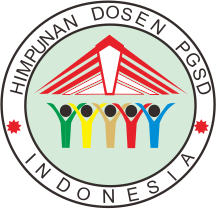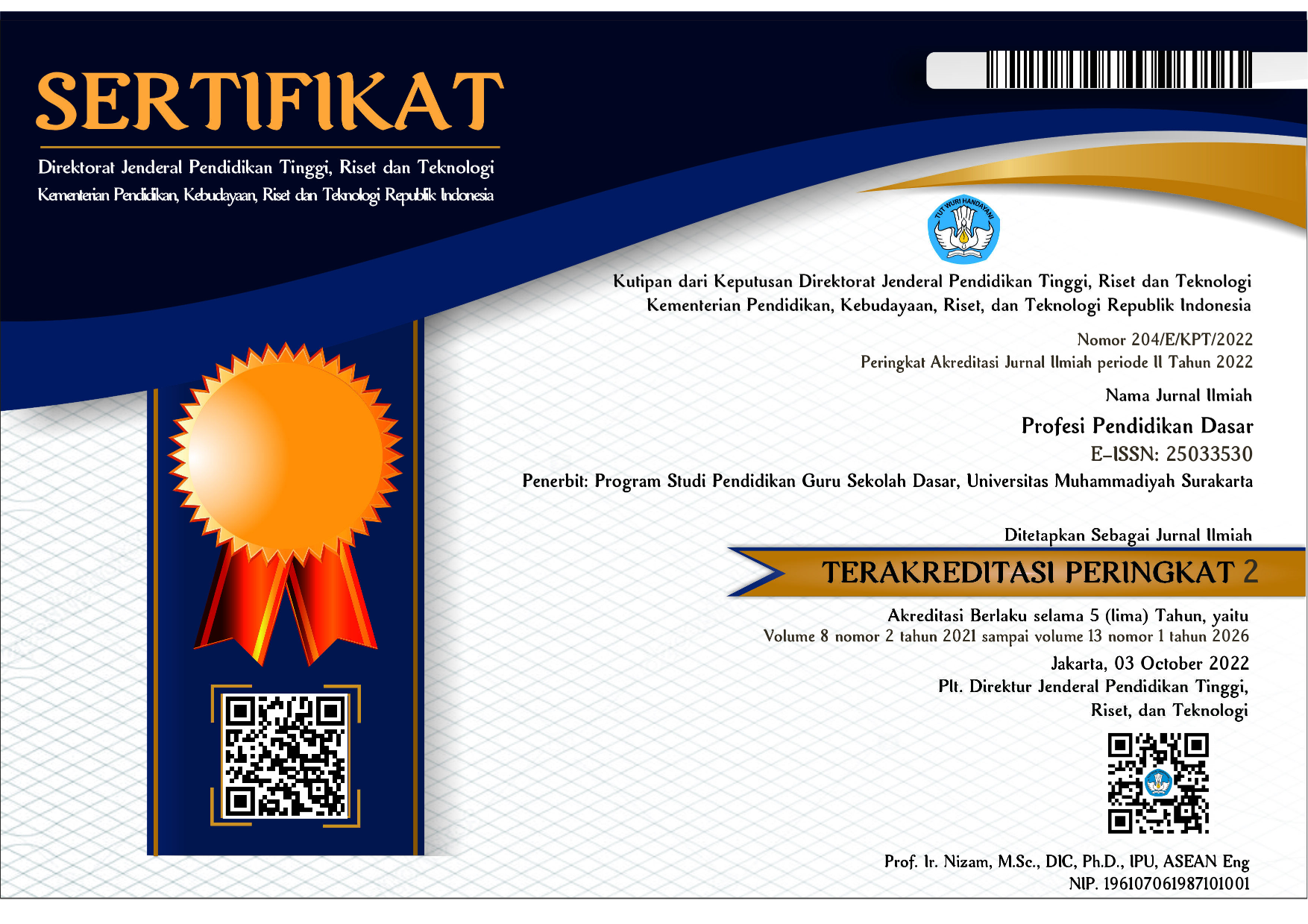EFEKTIVITAS SCIENTIFIC APPROACH WITH GUIDED EXPERIMENT PADA PEMBELAJARAN IPA UNTUK MEMBERDAYAKAN KETERAMPILAN PROSES SAINS SISWA SEKOLAH DASAR
Pinkan Amita Tri Prasasti(1*)(1) Universitas PGRI Madiun
(*) Corresponding Author
Abstract
The purpose of this study was to determine the effectiveness of Scientific Approach with Guided Experiment on learning science to empower Science Process Skills. This study is a quasi-experimental research. The study design used Posttest Only Control Group Design is divided into two groups: an experimental group using a Scientific Approach with Guided Experiment and control groups using the method of lecture and discussion. The population in the study were all students of class V SD SD N Banjarejo Academic Year 2016/2017 by the number of 122 students. The sampling technique is cluster random sampling done by taking a sample of 37 fifth grade students in the experimental class A and 36 students of class V C in the control class. The instrument used was a questionnaire, observation sheets, interview and test. Data science process skills were tested by t-test. The results of the analysis of hypothesis testing using t-test with significance level of 5% yield significance at p = 0.000 and the value = 0.018. Classes that implement Scieintific aproach with Guided Experiment has an average KPS higher than the class without using Scieintific aproach with Guided Experiment in the amount of 82.34 and 71.14. Based on the results of hypothesis testing can dismpulkan that Scieintific aproach with Guided Experiment in empowering capabilities of Science Process Skills Student GradeV SD N Banjarejo Madiun Academic Year 2016/2017.
Keywords
Full Text:
PDFReferences
Amita, Pinkan.2016. Efektivitas Scieintific Aproach pada Pembelajaran Sains dengan Setting PBL untuk Memberdayakan Science Process Skil. Jurnal Bioedukasi. Pendidikan Biologi Universitas Sebelas Maret. Vol 8. No 1 .
Capay, M dan Magdin, M (2013) Task For Teaching Scientific Approach Using The Black Box Method. Jurnal Departement of Informatics Faculty of Natural Sciencies, Constantine the Philospher Universitas in Nitra. Slovakia
Isjoni. 2013. Cooperative Learning (Efektifitas Pembelajaran Kelompok). Bandung: Alfabeta
Lu, C., Hong, J., & Tseng, Y. 2007. The Effectiveness Of Inquiry-Based Learning By Scaffolding Students To Ask “5 Why” Questions. Jurnal Pendidikan, vol. 1, no. 26.
Permendiknas. 2006. Standar Isi dan Standar Kompetensi Lulusan untuk Satuan Pendidikan Dasar SD/ MI. Jakarta: Cipta Jaya.
PISA. 2009. Ranking by Mean Score for Reading, Mathematics and Science. Online(http://www.pisa.oecd.org/pages/0,3417,en322523513223573111111,00.html Diakses 21 Desember 2016).
TIMSS. 2011. TIMSS and PIRLS in 2011Development Completed –Into the Field!.TIMSS & PIRLS International Study Center, Lynch School of Education, Boston College. IEA International Association for the Evaluation of Educational Achievement. Online (http://www.iea.nl. Diakses 21 Desember 2016).
Sanjaya, Wina. 2012. Strategi Pembelajaran Berorientasi Standar Proses Pendidikan. Jakarta: Prenada Media Grup.
Trianto. 2013. Mendesaign Model Pembelajaran Inovatif Progresif. Jakarta: Kencana
Trianto. 2014. Model Pembelajaran Terpadu: Konsep Strategi, dan Implementasinya dalam kurikulum Tingkat Satuan Pendidikan (KTSP). Jakarta: Bumi Aksara.
Wenning, C.J. 2008. “Dealing More Effectively with Alternative Conception in Science”. Journal Phisics Teacher Education, Volume 5, Nomor 1. hlm.11-19.
Article Metrics
Abstract view(s): 3227 time(s)PDF: 3987 time(s)
Refbacks
- There are currently no refbacks.


















